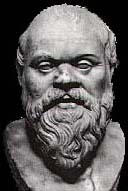 Freshman Studies
Freshman Studies
Winter Term, Section 02D
Freshman Studies
Winter Term, Section 02D
1. What kind of a book is The Beak: a scientific study, a work on doing science, or a piece of journalism? 2. How might different answers to the first question affect your expectations or approach to the book? 3. What field of inquiry does the book address, and why has Weiner found it of interest? 4. Why does Weiner shift from the Grants to other researchers and Darwin: whose “story” is he telling? 5. How do initial depictions of the Grants and Darwin compare and contrast their role as “scientists”? 6. How do these portraits accord with
your image of a scientist: that is, what makes someone a scientist?
10. How did Darwin’s framework of understanding or “paradigm” differ from that of “creationists”? 11. Would Plato have preferred one of these views over the other? Why? What of Chuang Tzu? 12. What was the scientific weakness of Darwin’s theory and how has the Finch Unit tried to strengthen it? 13. What are the different ways in which the “Finch Unit” has observed and studied Galapagos finches? 14. Why were they so concerned about measuring and assigning numbers to everything including colors? 15. Why do the beaks of the Galapagos finches hold special significance to Grant study and biology? 16. Has the work of the Finch Unit merely confirmed Darwin’s ideas or led to new “discoveries”? 17. Why does Weiner say their findings reflect Heraclitus’ view that “everything flows”? 18. Is the definition of species and varieties based upon natural or arbitrary distinctions? 19. In what sense are sexual and natural selection “forces” pushing and pulling species into shape? 20. How does an “evolutionary landscape” image evoke a different view of evolution from that of a tree? 21. Why does hybridization complicate the effects of natural and sexual selection on evolution? 22. What are the broader implications of a “reticulate” or net-like view of the tree of life metaphor? 23. How does the introduction of a single new species affect an existing system of living things? 24. What makes human interaction with natural systems problematic for Weiner and the Grants? 25. Why should we be concerned about human changes in systems that are ever-changing anyhow? 26. How do you regard the human impact on the natural environment? 27. Does it make sense to see humans as a unique “unnatural” agent apart from “Nature”? 28. How valid is it to posit any unity or agency called Nature? Compare this to Chuang Tzu’s Tao?
|